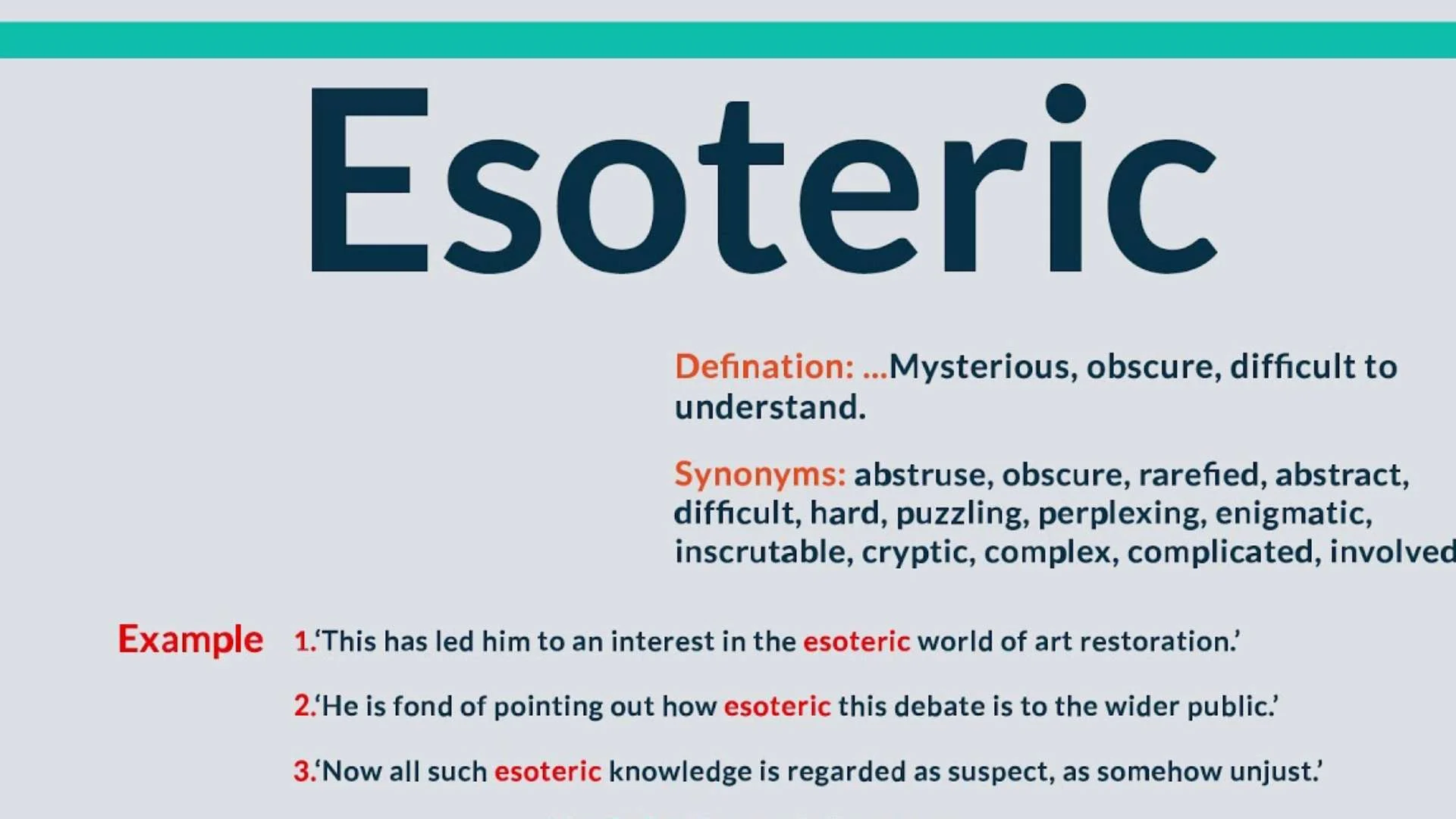Why Words Like “Esoteric” Matter in 2025
In 2025, communication is more layered than ever. As AI, digital discourse, and cross-cultural interactions evolve, the demand for precise, impactful language has never been higher. One such word that encapsulates depth, nuance, and mystery is “esoteric.”
But what does it really mean? How is it best used in writing and conversation? And are there more relatable or professional synonyms depending on the context?
This guide dives deep into the true meaning of “esoteric”, uncovers its history, synonyms, subtle variations in tone, and offers practical alternatives and examples tailored to both formal and casual settings.
What Does “Esoteric” Mean?
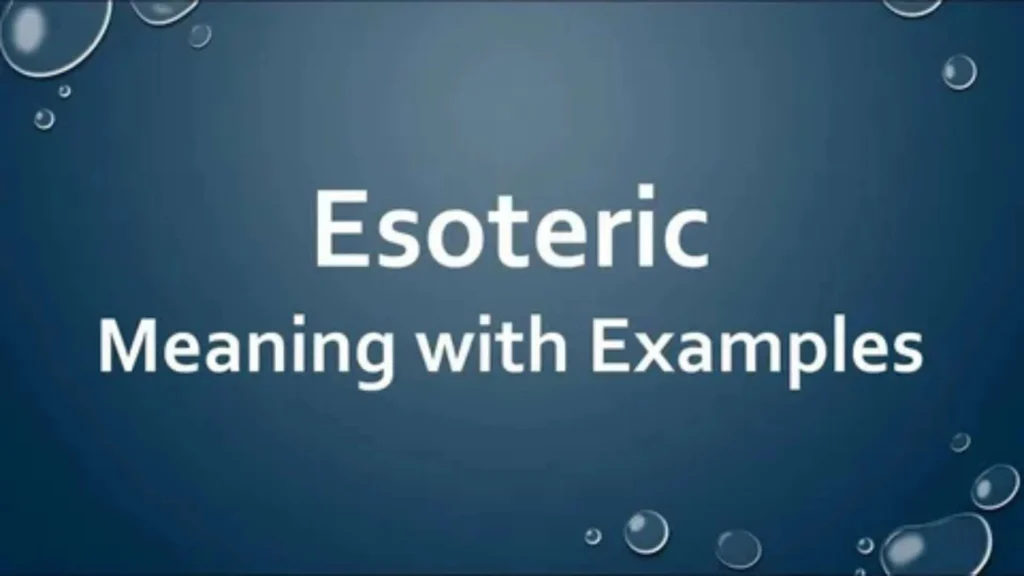
The word “esoteric” refers to knowledge or information that is intended for or likely to be understood by only a small number of people with specialized knowledge or interest.
🔍 In simpler terms:
It means something obscure, specialized, or not easily accessible to everyone. It’s the opposite of common or mainstream knowledge.
Origin and Etymology of “Esoteric”
- Greek roots: The word derives from the Ancient Greek “ἐσωτερικός” (esōterikos), meaning “belonging to an inner circle.”
- It originally referred to philosophical teachings reserved for select students, particularly by Pythagoras and later Aristotle.
- In the 1600s, English thinkers began using the word to describe knowledge kept secret for intellectual or spiritual reasons.
When Should You Use “Esoteric”?
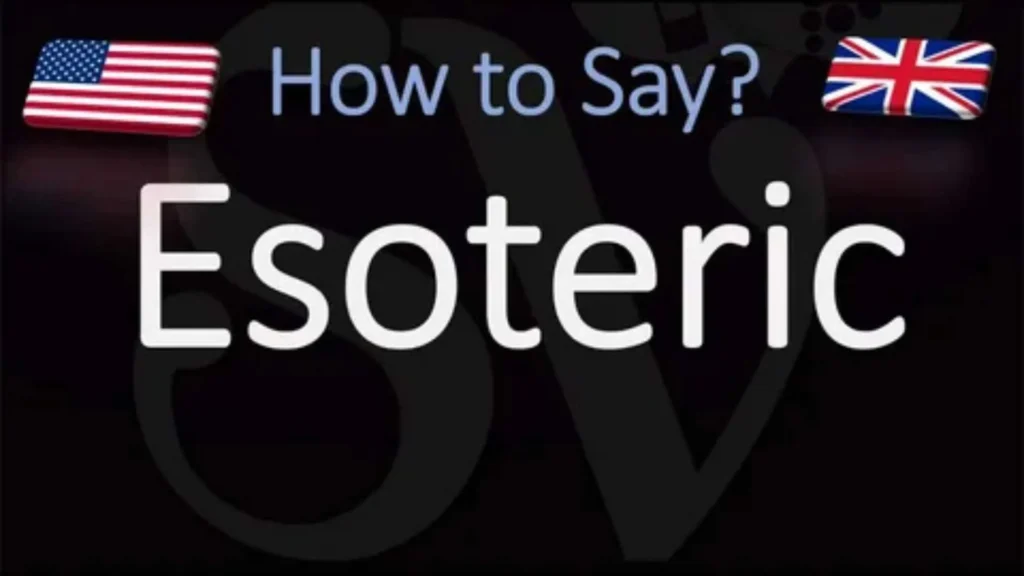
You should use the word “esoteric” when:
- Discussing specialized knowledge not known to the general public.
- Referring to niche academic fields, rare cultural practices, or mystical ideas.
- Describing language, symbols, or references that only a select group understands.
📌 Example:
“The professor’s lecture on quantum topology was so esoteric that only two students managed to follow the entire argument.”
Common Situations Where “Esoteric” Applies
| Situation | Use of “Esoteric” |
|---|---|
| Academic fields | “Esoteric theories in particle physics” |
| Spiritual beliefs | “Esoteric teachings of ancient mystics” |
| Hobbies or fandoms | “Esoteric lore in fantasy literature” |
| Professional jargon | “The esoteric language of legal documents” |
| Art & music | “Esoteric influences in avant-garde compositions” |
Polite and Professional Alternatives to “Esoteric”
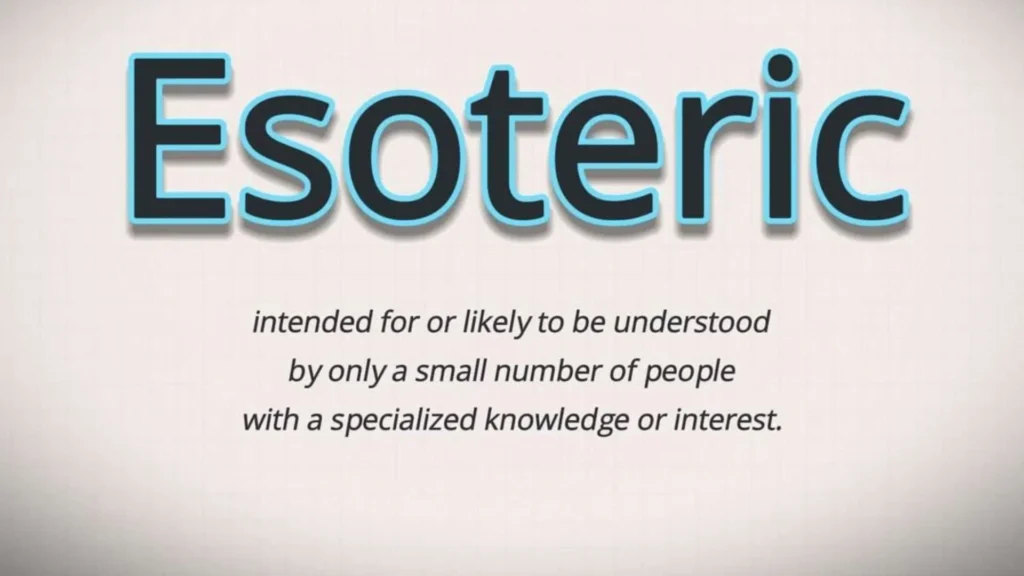
Sometimes the word “esoteric” can sound elitist or overly complex. In business, academia, or social contexts, you might want more polite, professional, or reader-friendly substitutes. Here are curated alternatives:
🔹 1. Specialized
Best for: Formal or technical contexts.
Example: “This field involves specialized knowledge in data encryption.”
🔹 2. Niche
Best for: Describing focused topics in marketing, entertainment, or hobbies.
Example: “She writes about a niche segment of 1980s video game culture.”
🔹 3. Arcane
Best for: Historical, literary, or mysterious tones.
Example: “The manuscript is filled with arcane references to alchemical practices.”
🔹 4. Cryptic
Best for: Describing messages or speech that’s puzzling or ambiguous.
Example: “His explanation was cryptic and hard to decode.”
🔹 5. Obscure
Best for: General conversations; less formal than “esoteric.”
Example: “The movie referenced some obscure historical facts.”
🔹 6. Exclusive
Best for: Marketing or branding; sounds more appealing.
Example: “This is an exclusive insight only our subscribers receive.”
🔹 7. Rarefied
Best for: Intellectual, cultural, or highbrow content.
Example: “She lives in a rarefied world of elite scholarship.”
🔹 8. Recondite
Best for: Academic or literary writing.
Example: “The book explores recondite theories in theology.”
🔹 9. Hidden
Best for: Spiritual or metaphorical usage.
Example: “The temple preserved hidden wisdom for centuries.”
🔹 10. Insider
Best for: Pop culture, social commentary, or professional lingo.
Example: “It’s full of insider jokes only coders would understand.”
Tone Matters: Choosing the Right Word Based on Audience
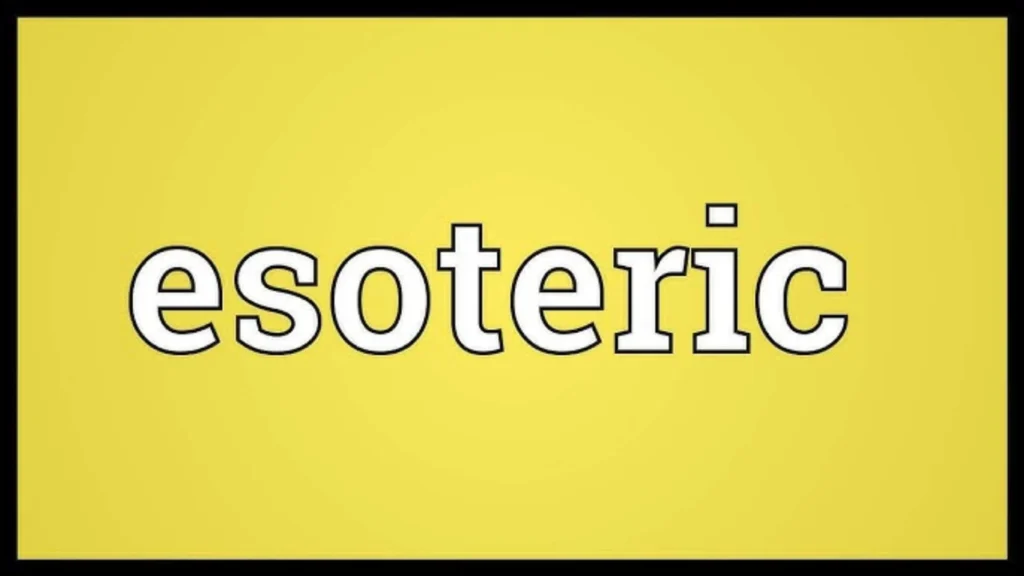
The key to using “esoteric” (or its alternatives) well is knowing your audience. Here’s how tone shifts with different words:
| Tone | Preferred Words |
|---|---|
| ✅ Friendly | Niche, Hidden, Insider |
| ✅ Academic | Esoteric, Recondite, Specialized |
| ✅ Professional | Exclusive, Specialized, Obscure |
| ✅ Mystical | Arcane, Hidden, Rarefied |
| ❌ Avoid (in casual writing) | Recondite, Rarefied, Esoteric (unless defined) |
10 Powerful Example Sentences (Contextually Styled)
Here are 10 well-written examples of how to use “esoteric” and its synonyms in diverse situations:
- Academic Context:
“The esoteric principles of quantum metaphysics aren’t covered in standard textbooks.” - Professional Tone:
“Only those with specialized training in legal compliance understood the full scope of the proposal.” - Creative Writing:
“The wizard muttered arcane incantations, barely audible over the wind.” - Tech Culture:
“His talk was packed with insider references that went over most people’s heads.” - Spiritual Setting:
“The monks passed down hidden rituals never recorded in scriptures.” - Casual Blog Style:
“She’s obsessed with this niche genre of Nordic crime dramas.” - Historical Context:
“The ancient scroll revealed obscure truths about a forgotten civilization.” - Product Marketing:
“Unlock exclusive strategies only top performers use.” - Literary Style:
“He reveled in the rarefied world of obscure French literature.” - User Experience Commentary:
“The app’s interface feels cryptic to non-developers.”
Cultural Relevance in 2025: Why “Esoteric” Is Trending
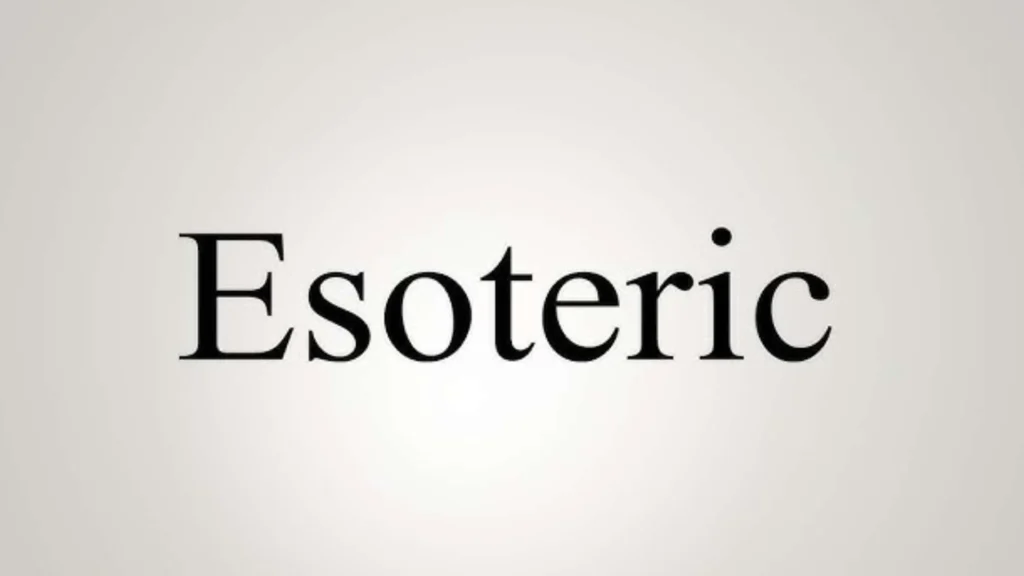
In 2025, digital micro-communities, AI prompt engineering, mystical self-help trends, and academic fragmentation have all contributed to the rise of esoteric language. More users seek customized content, private forums, or deep-dive knowledge, often described as “esoteric” by outsiders.
This word now embodies:
- Hyper-personalization
- Deep knowledge silos
- Cultural exclusivity and prestige
Whether in AI prompts, NFT circles, or academic journals, “esoteric” content is the new elite.
What “Esoteric” Does NOT Mean
To avoid miscommunication, remember:
- It does not mean wrong or outdated (it’s just not widely known).
- It does not imply snobbery—though overuse can sound pretentious.
- It is not interchangeable with “complicated”; something can be esoteric but easy for a specific group.
When to Avoid Using “Esoteric”
Avoid using “esoteric” if:
- You’re speaking to a general audience unfamiliar with the subject.
- You don’t intend to exclude readers.
- There’s a more accessible synonym available.
✔️ Tip: Always consider your reader’s familiarity with the subject. Use “esoteric” only if you define it or your audience expects it.
Conclusion: Embrace Precision, Not Complexity
In an age of hyper-connectivity and algorithm-driven content, choosing a word like “esoteric” can instantly elevate your language—or alienate your audience.
The key? Intentionality.
If you’re addressing a specialist crowd, the word works.
If you’re writing for broader impact, go with more friendly alternatives like niche, specialized, or exclusive.
Language evolves, but the need for clarity never fades. Use “esoteric” when precision matters, but always keep your reader at the heart of every sentence.

